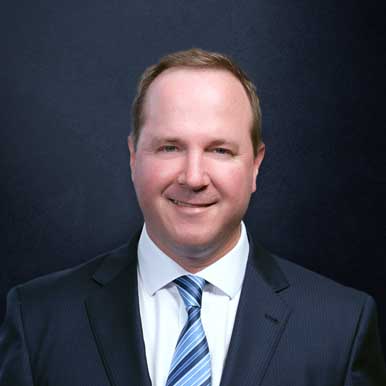Naranjo: Finally, Some Good News For California Employers—“Good Faith” Defense Applies for Wage Statement Violation Claims
May 8, 2024 | Employment Articles

California employers facing wage and hour class actions and California Private Attorney’s General Act (“PAGA”) cases with some types of wage statement violation claims can breathe a little easier. In a rare but significant victory for employers, the California Supreme Court held that an employer’s good faith belief that it provided wage statements that complied with California Labor Code § 226(a) bars a finding that its failure to report wages earned was “knowing and intentional”, as is necessary to recover wage statement penalties. (See Naranjo v. Spectrum Security Services, Inc., (May 6, 2024) S279397.)
Background
Plaintiff Gustavo Naranjo (“Naranjo”) worked for Spectrum Security Services (“Spectrum”) briefly in 2006 and initially filed suit in June 2007. (Yes, you read that correctly – this case has been going on for 17 years!) Spectrum provided short-term custodial services to federal agencies.[1] Officers transported and guarded prisoners and detainees who required outside medical attention or had other appointments outside custodial facilities. Spectrum maintained an on-duty meal period policy and did not provide officers with duty-free rest periods.[2]
Naranjo filed a class action alleging causes of action for meal and rest period violations and claims for waiting time penalties[3] and wage statement violations.[4] The trial court ultimately held that the payment of meal period and rest period premiums for non-compliant meal and rest periods constituted an “earned wage” that needed to be reported on a wage statement and paid at the time of separation of employment. The trial court also found that Spectrum had presented a “good faith” defense and was not liable for waiting time penalties under Labor Code § 203 but held that Spectrum was liable for penalties under Labor Code § 226 because its failure to report premium pay for missed meal breaks in employee’s wage statements was “knowing and intentional and not inadvertent.” Both sides appealed.
The California Court of Appeals disagreed with the Naranjo trial court and held that meal period penalty payments did not constitute “wages earned” that were required to be listed on wage statements or paid at the time of an employer’s departure.
The California Supreme Court ultimately granted review to determine whether a failure to include meal or rest period premiums on an employee’s wage statement would give rise to claims for waiting time penalties and wage statement penalties. In 2022, the Court held that, contrary to the common understanding of employers and courts throughout the state,[5] missed break premium pay did constitute wages subject to the Labor Code’s timely payment and reporting requirements and could support waiting time penalties and wage statement penalties. The Court also held that the premium payments must appear on employee’s wage statements. The case was sent back to the Court of Appeals to determine if Spectrum had “willfully” withheld wages or acted “knowingly and intentionally” by failing to report missed break premium pay on its wage statements.
The Court of Appeals determined that Spectrum’s failure to pay meal period premiums was not “willful” under Labor Code § 203 because the employer had a “good faith dispute” as to whether wages were due.[6] The Court of Appeals also held that the “knowing and intentional” standard under Labor Code § 226 was essentially identical to the “willful” standard under Labor Code § 203, and declined to award wage statement violation penalties for the same reasons. The Court of Appeals emphasized that Spectrum had a “good faith dispute” as to whether premium pay even constituted “wages” required to be reported on wage statements and noted that the issue had not been resolved until the California Supreme Court’s 2022 decision.[7]
Naranjo petitioned the California Supreme Court for review on the issue regarding wage statement penalties and attorneys’ fees under Labor Code § 226.
California Supreme Court’s Holding
The California Supreme Court affirmed the Court of Appeals’ holding that when an employer shows that it objectively, reasonably and in good faith believed that it provided employees with adequate wage statements, the employer’s failure to comply with wage statement requirements is not “knowing and intentional.” Accordingly, the employer is not subject to penalties under Labor Code § 226(e) (1).
The Court also clarified that because employees so often bring claims for violations of Labor Code § 203 and § 226 that derive from the same primary violations of the Labor Code, the two penalty provisions should be read in a manner that harmonizes them.
Critically, the Court recognized the significant fairness concerns at play here for employers. The Court emphasized that holding Spectrum liable for wage statement penalties in this case would essentially punish them for failing to predict how unsettled legal issues would be resolved many years down the line.
Employer Takeaways
While not a silver bullet for employers, Naranjo should prove helpful in addressing derivative claims for wage statement penalties under PAGA. Specifically:
- Naranjo clarifies that if an employer reasonably and in good faith believed that it was providing complete and accurate wage statements in compliance with the requirements of Labor Code § 226, then it has not knowingly and intentionally failed to comply with the wage statement law and is not liable for statutory penalties. This should hopefully decrease exposure for employers on derivative wage statement penalty claims and offers a strong affirmative defense for employers to raise in litigation.
- The Court’s suggestion that Labor Code § 203 and § 226 should be read harmoniously should allow for employers to rely on helpful, and more developed, case law regarding “good faith” defenses under Labor Code § 203.
- The “good faith” defense based on a misunderstanding of law under Labor Code § 226 is only available where the employer’s obligations are genuinely uncertain. Mere ignorance of the law or failure to comply with well-established law likely will not suffice.
- Naranjo expressly does not apply to employees bringing an action for injunctive relief to ensure compliance with Labor Code § 226 (and the accompanying costs and attorney’s fees sought for the injunctive action) or for employers who are the subject of a Department of Labor Standards and Enforcement (“DLSE”) enforcement action for failure to comply with Labor Code § 226.
- Employers should contact their employment counsel to ensure that their policies adequately address the importance of wage statement compliance and are up to date with well-established law.
- Any and all “good faith disputes” as to the proper payment of wages should be identified early on in pending litigation and raised as affirmative defenses as soon as possible.
Boutin Jones Inc.’s Employment Law Group attorneys are available to assist employers with all aspects of compliance with California’s employment laws, including wage statement and meal and rest break compliance.
[1] Naranjo v. Spectrum Security Services, Inc. (2009) 172 Cal.App.4th 654, 660.
[2] Under Labor Code § 226.7, if an employer fails to provide a meal or rest period to an employee, the employer must pay the employee one additional hour of pay for each work day that the meal or rest period is not provided.
[3] Labor Code § 203(a) provides that waiting-time penalties are owed if an employer willfully fails to pay all wages due to an employee who is discharged or who quits.
[4] Labor Code § 226(e)(1) provides that an employer who knowingly and intentionally fails to comply with the requirements in Labor Code § 226(a), including the provision mandating that the wage statements accurately state the gross wages earned by employees, has committed a wage statement violation and is subject to wage statement penalties.
[5] The California Supreme Court itself had seemed to previously indicate that meal and rest period premiums did not constitute wages earned. See Kirby v. Immoos Fire Protection, Inc., (2012) 53 Cal. 4th 1244, 1259 (holding that actions brought for meal and rest period premiums did not constitute “actions brought for the nonpayment of wages” within the meaning of the attorney’s fee provisions under Labor Code § 218.5.)
[6] Under California Code of Regulations § 13250, a ‘good faith dispute” that any wages are due will preclude imposition of waiting time penalties under Cal. Labor Code § 203. A “good faith dispute” exists unless the defenses presented by the employer are unreasonable, unsupported by any evidence, or are presented in bad faith.
[7] Naranjo v. Spectrum Security Services, Inc., (2023), 88 Cal. App. 5th 937, 951 fn. 8.
Subscribe to our Blogs
Get notified when new posts are published.

